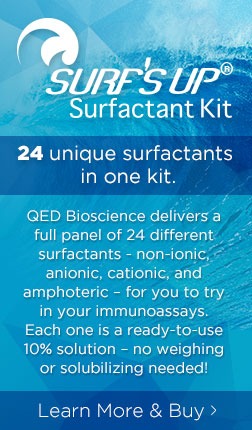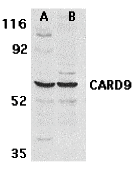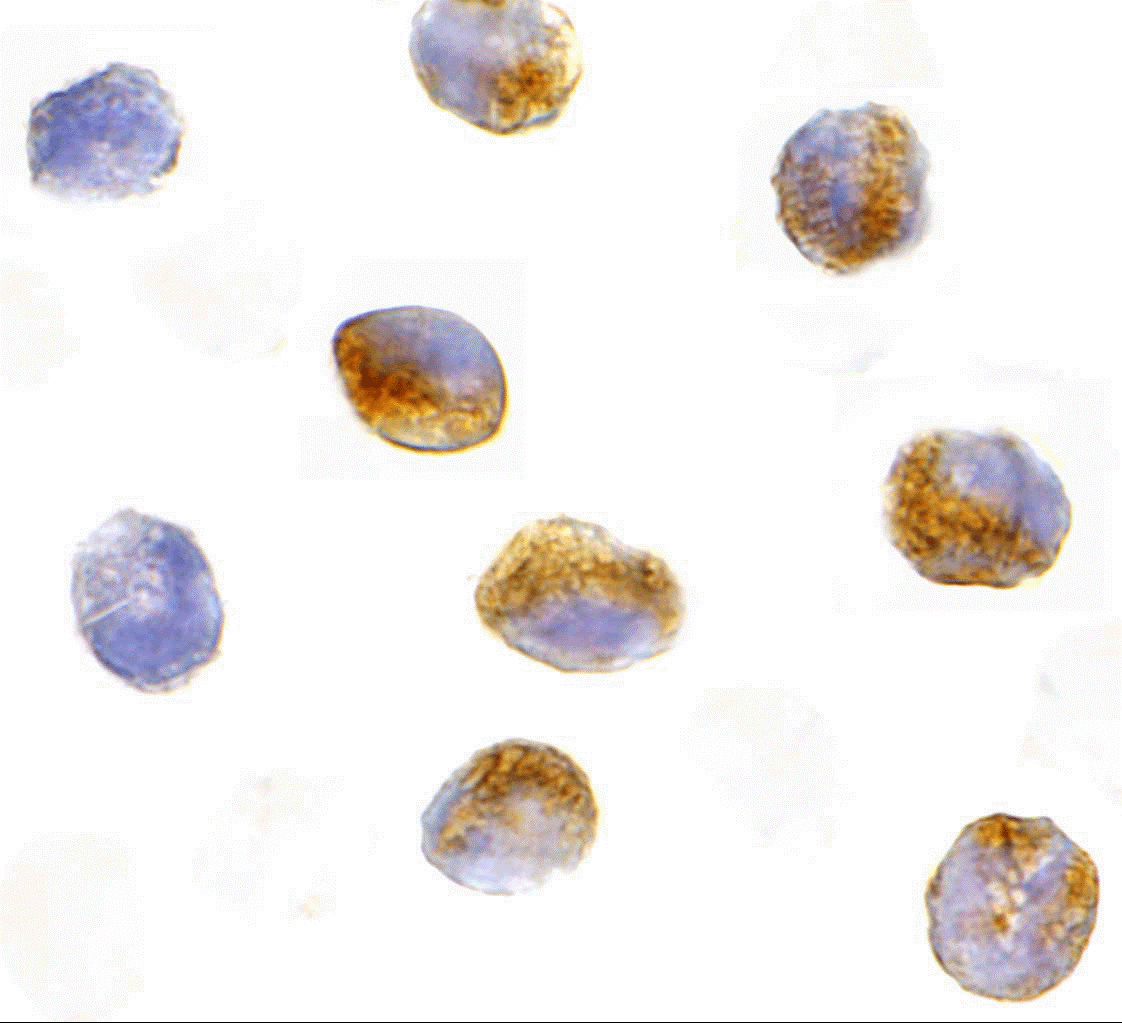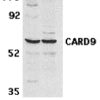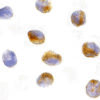Anti-CARD9 Antibody (11003)
$469.00
SKU: 11003
Categories: Antibody Products, Apoptosis Antibodies, Products
Overview
Product Name Anti-CARD9 Antibody (11003)
Description Anti-CARD9 Rabbit Polyclonal Antibody
Target CARD9
Species Reactivity Human
Applications ELISA,WB,ICC
Host Rabbit
Clonality Polyclonal
Isotype IgG
Immunogen Peptide corresponding to aa 521-536 of human CARD9 (accession no. AF31187).
Properties
Form Liquid
Concentration Lot Specific
Formulation PBS, pH 7.4.
Buffer Formulation Phosphate Buffered Saline
Buffer pH pH 7.4
Format Purified
Purification Purified by peptide immuno-affinity chromatography
Specificity Information
Specificity This antibody recognizes human CARD9, a novel CARD (Caspase Recruitment Domain)- containing protein that interacts with the CARD activation domain of Bcl-10. CARD9 associates with Bcl-10 to form a complex within cells. CARD9 induces apoptosis and activates NF- B.
Target Name Caspase recruitment domain-containing protein 9
Target ID CARD9
Uniprot ID Q9H257
Alternative Names hCARD9
Gene Name CARD9
Gene ID 64170
Accession Number AF311287
Sequence Location Cytoplasm
Biological Function Adapter protein that plays a key role in innate immune response against fungi by forming signaling complexes downstream of C-type lectin receptors (PubMed:26961233, PubMed:33558980). CARD9-mediated signals are essential for antifungal immunity against a subset of fungi from the phylum Ascomycota (PubMed:24231284, PubMed:25702837, PubMed:25057046, PubMed:26679537, PubMed:26961233, PubMed:26521038, PubMed:27777981, PubMed:29080677, PubMed:33558980). Transduces signals in myeloid cells downstream of C-type lectin receptors CLEC7A (dectin-1), CLEC6A (dectin-2) and CLEC4E (Mincle), which detect pathogen-associated molecular pattern metabolites (PAMPs), such as fungal carbohydrates, and trigger CARD9 activation (By similarity). Upon activation, CARD9 homooligomerizes to form a nucleating helical template that recruits BCL10 via CARD-CARD interaction, thereby promoting polymerization of BCL10 and subsequent recruitment of MALT1: this leads to activation of NF-kappa-B and MAP kinase p38 (MAPK11, MAPK12, MAPK13 and/or MAPK14) pathways which stimulate expression of genes encoding pro-inflammatory cytokines and chemokines (PubMed:11053425, PubMed:26488816, PubMed:31296852, PubMed:26961233, PubMed:33558980). CARD9 signaling in antigen-presenting cells links innate sensing of fungi to the activation of adaptive immunity and provides a cytokine milieu that induces the development and subsequent of interleukin 17-producing T helper (Th17) cells (PubMed:24231284). Also involved in activation of myeloid cells via classical ITAM-associated receptors and TLR: required for TLR-mediated activation of MAPK, while it is not required for TLR-induced activation of NF-kappa-B (By similarity). CARD9 can also be engaged independently of BCL10: forms a complex with RASGRF1 downstream of C-type lectin receptors, which recruits and activates HRAS, leading to ERK activation and the production of cytokines (By similarity). Acts as an important regulator of the intestinal commensal fungi (mycobiota) component of the gut microbiota (PubMed:33548172). Plays an essential role in antifungal immunity against dissemination of gut fungi: acts by promoting induction of antifungal IgG antibodies response in CX3CR1(+) macrophages to confer protection against disseminated C.albicans or C.auris infection (PubMed:33548172). Also mediates immunity against other pathogens, such as certain bacteria, viruses and parasites; CARD9 signaling is however redundant with other innate immune responses (By similarity). In response to L.monocytogenes infection, required for the production of inflammatory cytokines activated by intracellular peptidoglycan: acts by connecting NOD2 rUniProtKB:A2AIV8, PubMed:11053425, PubMed:24231284, PubMed:25057046, PubMed:25702837, PubMed:26488816, PubMed:26521038, PubMed:26679537, PubMed:26961233, PubMed:27777981, PubMed:29080677, PubMed:31296852, PubMed:33548172, PubMed:33558980}.
Research Areas Apoptosis
Application Images



Description Western blot analysis of CARD9 expression in human MDA-MB-361 (A) and PC-3 (B) cell lysate with CARD9 antibody at 2.5 ug/ml.

Description Immunocytochemistry of CARD9 in K562 cells with CARD9 antibody at 10 ug/mL.
Handling
Storage This antibody is stable for at least one (1) year at -20°C. Avoid multiple freeze-thaw cycles.
Dilution Instructions Dilute in PBS or medium which is identical to that used in the assay system.
Application Instructions Immunoblotting: use at 2-3ug/mL. A band of 59kDa is detected.
Immunocytochemistry: use at 10ug/mL.
These are recommended concentrations.
Enduser should determine optimal concentrations for their applications.
Positive control: PC-3 cell lysate.
Immunocytochemistry: use at 10ug/mL.
These are recommended concentrations.
Enduser should determine optimal concentrations for their applications.
Positive control: PC-3 cell lysate.
References & Data Sheet
Data Sheet  Download PDF Data Sheet
Download PDF Data Sheet
 Download PDF Data Sheet
Download PDF Data Sheet
